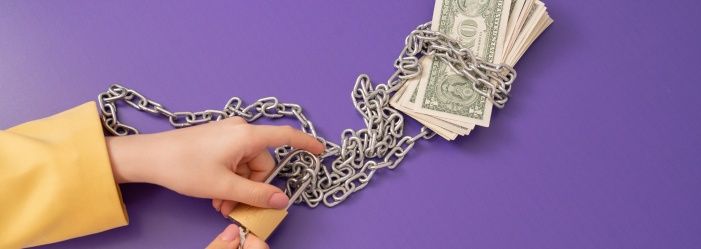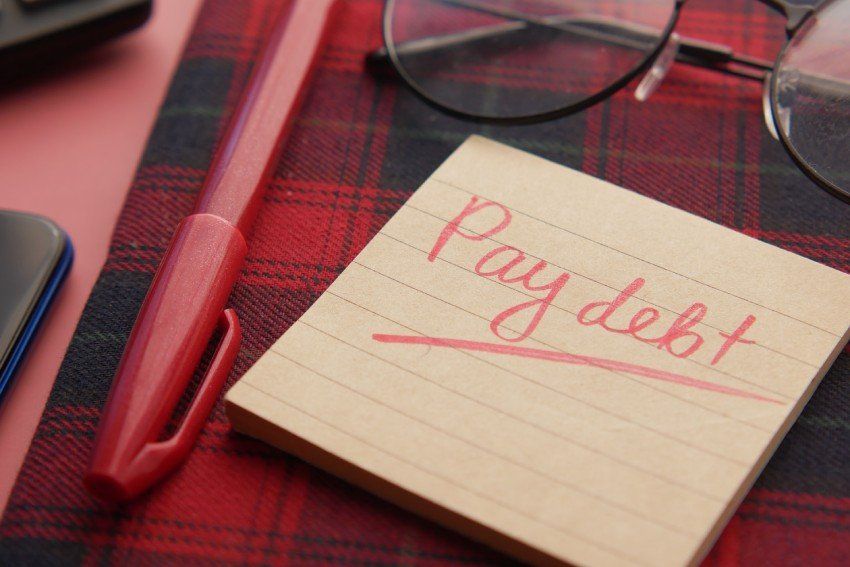Last Updated: November 06, 2023
Tips and Strategies on How to Manage your Debt

Managing debt can be difficult, but the good news is that there are some ways to make it easier. This blog post will talk about different techniques for managing debt and how you can get out of it quicker.
Some of these methods may seem like common sense, but they work, and the sooner you get working on them the better!
Know your credit score
Knowing your credit score is important to help you manage any outstanding debt.
Becoming knowledgeable about your FICO score gives a person the power to gain control over their financial future, for example being eligible for lower APRs and higher credit limits with a lender or other company.
With a low credit score, you may not be eligible for loans or even denied if they have too many delinquent accounts on file with the major reporting agencies.
Worse yet, high balances where there has been little activity can cause an even lower credit rating making it difficult to obtain much-needed funds from creditors at times when they are needed most.
Having knowledge of your credit report also enables people to monitor scores that might indicate identity theft as well as monitor themselves against.
Learn more by reading The 5 Main Credit Score Factors You Need To Know
Keep track of all your monthly bills, including how much you spend on food, gas, entertainment, etc.
If you have credit card debt, it’s important to track your expenses in order to determine which money is going towards paying down the debt and which is going towards day-to-day living.
Track your spending by creating a spreadsheet with monthly columns for "amount sent to debt," "debt monthly payment," and "monthly cash" on the right of each column. At the end of every month, update these numbers.
You can then see what you need to cut back on or what changes you need to make that will reduce how much debt is carried from month to month.
There are two methods by which the person trying to get out of debt could go about managing their budget while still tracking their spending. They can either set a "cash" amount every month and not purchase anything else while making gradual reductions in their debts OR they can maintain some semblance of life but spend very frugally until debts are gone.
Tracking expenses is one key element that helps people analyze whether or not they need help with changing behaviors in order to achieve these goals, since tracking will make it easier for us to identify where our money is going.
Create a budget and stick to it
It's important to create a budget and stick to it in order for you to effectively manage your money and your spending. A budget is important for many reasons, but mostly because it enables you to plan your financial goals and gives you the information necessary to make smart investment decisions.
It implies that if something comes up, like an emergency medical expense or a busted water heater, then you know that you can still meet your goals if risks are managed properly.
The lack of a budget can cause other serious problems too. What happens when two people want to buy matching front porches? They don't know how much one porch could really cost--without their knowledge of margins or other costs associated with buying new steps.
It's hard for them to set priorities during the decision-making process, which might lead their house renovation project at its current stage towards bankruptcy while they're not able to predict the outcome from one day to the next.
Learn more by reading What Is The 50 30 20 Budget Rule?
Pay off high-interest debt first
If a loan has a high-interest rate, paying off that loan will save you more money in the long run. The lower your interest rates are, the greater benefits you get from compound interest. When someone has taken out loans with different rates, they'll find that it takes longer to pay off loans with higher interest rates.
Paying off your high-interest debt first helps you to free up cash. Depending on your budget you should consider approximately how much money is saved by paying down a high-interest debt across the course of the year and weigh it against how much more money can be earned from putting that extra change towards your other debts.
People with high-interest debt are paying a lot more in interest on their borrowed money. That amount is not deductible from your income but is taken right before the tax bracket reduction cards.
In other words, you're actually paying higher taxes when you add in these hidden charges against your income. So it's less expensive to settle high-interest debt first - that way if your budget allows for a lower principal & interest payment annually after that, the rest of what you're making can go towards necessary expenses and savings with less worry.Consider a debt consolidation loan.
A debt consolidation loan allows you to roll multiple debts into one new loan, often at a lower interest rate. This can make managing debt easier by giving you just one payment to make each month. Be sure to shop around to find the best debt consolidation loan rates. Look for a loan with a lower rate than your current debts so you save money on interest.
Explore debt settlement
If your debt has become unmanageable, debt settlement may be an option. This involves negotiating with creditors to settle debts for less than the full amount owed. While this can lower your overall debt burden, it also comes with credit score implications and is not a DIY option. Work with a reputable debt settlement company if considering this path.
Seek help from a non-profit credit counselor
If you need guidance managing overwhelming debts, non-profit credit counseling agencies can assist at little or no cost. Counselors can help you assess your financial situation, create a budget, negotiate with creditors, establish debt management plans, and more. Reach out to reputable non-profits like NFCC member agencies for help.
If possible, try to pay off one card at a time
It's important to pay off one credit card at a time because doing so helps you build your credit. Paying off one debt at a time helps by distancing the pain of paying it off.
The more regularly scheduled debts are paid, the better lenders are about sticking with an established payment plan. Doing this regularly offers many other benefits in addition to improved scores and increased cushion in one's budget, including less chance for ID theft, bankruptcy protection against collections agencies, and lower risk of being sued in court by creditors seeking to collect on loans that have gone into default.
If you're paying interest on a credit card, it's difficult to justify paying off one at a time. The best strategy will depend on the interest rate you're being charged for each of your cards.
It makes sense to pay off the card with the highest APR rating first because that's where the most money is being lost.
FAQs
Conclusion
Achieving financial freedom won’t happen overnight. But, there are many simple and effective steps you can take to make progress in your journey towards a debt-free life. Start by creating a budget that includes all of your expenses from day one.
It may seem daunting at first but it will help get control over the money flowing out of your account each month for things like groceries or gas.
The more aware you become about how much is going out every day, the easier it will be to cut back on unnecessary spending habits and start saving some cash instead!
Once you have a better grasp on what's coming into and going out of your bank account each week, you can start to think about ways to increase your income while decreasing expenses.
Contact us today for your
free debt relief consultation.
✔ Accredited by Better Business Bureau with BBB A+ rating (4.93 rating and 1678 reviews)
✔ US News and World Reports and Bankrate ranked Pacific Debt Relief as one of “The Best Debt Relief Companies of 2024”
✔ 6.9 star rating by BestCompany.com (over 2379 client reviews)
✔ 4.8 star rating by TrustPilot based (over 1613 verified consumer reviews)
✔ ConsumerAffairs.com Accredited (over 544 verified reviews with an average rating of 5 stars)
✔ A Top 10 Rated Compan by TopTenReviews.com , ConsumersAdvocate.com and Top10debtconsolidation.com
✔ 4.6 star rating by Google (229 client reviews)
✔ 100% rating by SuperMoney (9 client reviews)
Reduce Your Credit Card Debt By Up to Half

BBB Reviews | 4.9/5.0 Rating









 Do Not Sell My Personal Information
Do Not Sell My Personal Information